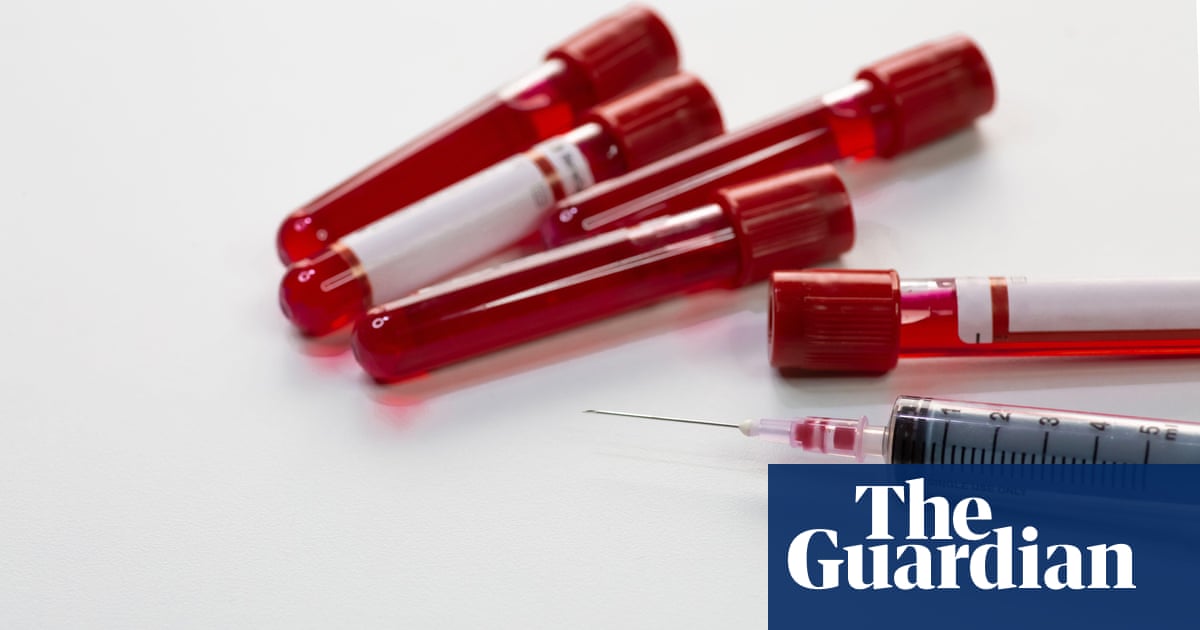Over the decades, juries at the imposing crown court in Winchester, Hampshire, have heard all kinds of extraordinary stories.
Few can have been quite as strange as the twisty tale of Hongchi Xiao, a Chinese-born banker turned “master” of alternative medicine who, by his account, learned a long-forgotten method of self-healing, paida lajin, from kung fu masters and hermits and spread the message across the world, attracting millions of followers.
His disciples see him as a guru, a revolutionary; his critics believe he is a dangerous fraud who enjoyed the acclaim and power that paida lajin, “slapping therapy”, afforded him.
Xiao was born in China, the son of a “western medical doctor” and an electrical engineer. He studied finance in Beijing and the US, and worked in banking in New York and Hong Kong. He also claims to have helped design the opening and closing ceremonies of the 2008 Beijing Olympics.
At the age of about 40 he decided he wanted to do something more meaningful with his life than making money, and embarked on “a quest” to learn from masters of ancient Chinese medicine.
He says he travelled for up to seven years, learning techniques from kung fu masters, hermits, farmers and fishers in what he called the “faraway” mountains of China, and came upon paida lajin, which he says is a form of self-healing, a “precious gift” bestowed on humans by God but abandoned in favour of modern “western” medicine with its “toxic” side-effects. “We are our own best doctor” is a basic tenet.
The technique, which he says can be picked up in minutes, has two elements. Paida involves the use of hands or paddles to repeatedly slap parts of the body to “enable smooth energy flow” in the meridians (energy channels in the body), while lajin is stretching the limbs and joints to aid the energy flow.
Xiao claims that practising paida lajin boosts qi (vital life energy) and blood flow, enhancing self-healing power.

He ran his first workshop in Beijing in 2010 and promoted the technique on websites, Facebook, YouTube videos and in books. He made connections with alternative healers and conventional churches of many denominations across Asia and then the world. His followers helped spread the word, posting testimonials explaining how paida lajin had helped their ailments, ranging from aches and pains to skin conditions and impotency.
Xiao began to offer residential workshops in New York, California and European cities, in which he taught paida lajin and participants took part in fasting and “zen jogging”. Sceptics suspect a great deal of money has been made, but in the witness box in Winchester he cut a modest figure and insisted repeatedly he was not in it for worldly wealth but to help people across the globe heal themselves.
His claims for the technique grew more dramatic. He said it could help cancer patients, and was better than CPR for dealing with heart attacks. There were stories of people in wheelchairs suddenly being able to walk, of athletes turning in dramatic personal best performances. It was used on elderly people, babies, even pets.
By 2016, Xiao was claiming paida lajin had spread to more than 50 countries with “tens of millions” of people practising it, and he said the “effective rate” of the technique was more than 80%.
He was critical of the pharmaceutical industry, claiming it tried to suppress therapies like his because they were a threat to their businesses. He wrote: “Fortunately now is the internet era. What used to be easily ignored or denied by experts can now be verified by thousands and millions of people.”
Perhaps his most controversial claim was that paida lajin could help people with diabetes. In April 2015, a six-year-old boy with type 1 diabetes became fatally ill at one of his workshops in Sydney after his parents stopped giving him insulin.
After that tragedy, he was at first free to continue to travel the world and arrived in Wiltshire in October 2016 to lead a workshop partly organised by a trustee of the Unification Church, sometimes known as the Moonies.
It was there that a British woman, Danielle Carr-Gomm, 71, who also had type 1 diabetes, and had first met Xiao at a workshop in Bulgaria, died after she stopped taking her insulin and fasted.
After Carr-Gomm’s death, Xiao was arrested. He was flown to Australia, convicted of manslaughter of the six-year-old in Sydney in 2019 and jailed. The judge in Australia concluded Xiao had told the boy’s mother to stop injecting him. He was subsequently brought back to the UK to face trial over Carr-Gomm’s death.
He remains defiant, describing himself as a political prisoner and pointing out that Mahatma Gandhi and Nelson Mandela ended up behind bars. The problem, he maintains, is that while paida lajin does work, it “is totally beyond the imagination of the media and the experts”.
.png)
 1 month ago
3
1 month ago
3









 English (US) ·
English (US) ·